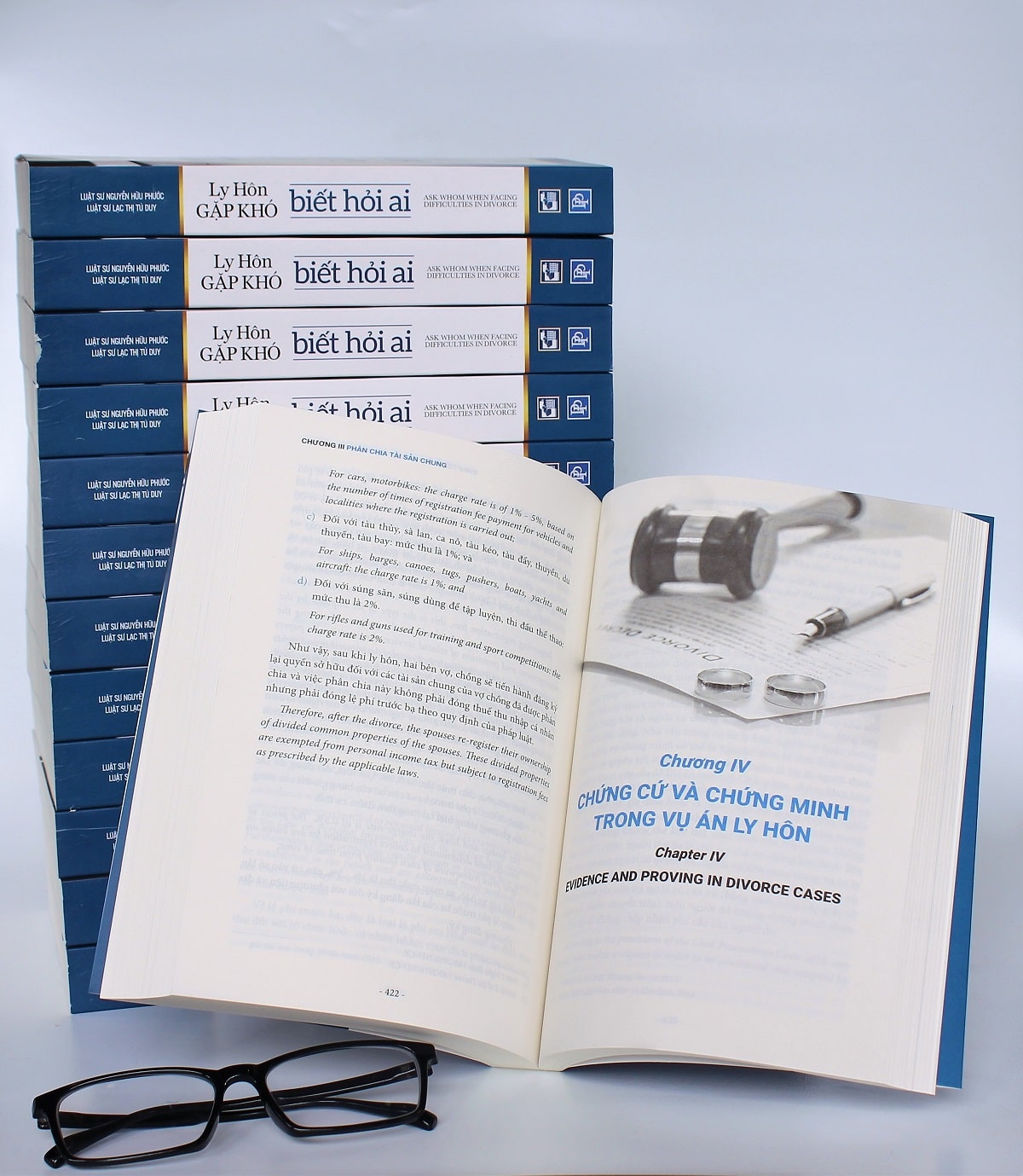According to the provisions of the Civil Proceedings Code 2015, any spouse, who makes a request in order to be considered and accepted by the Court, is obliged to prove that his or her request is grounded and lawful[3]. There are a few exceptions related to labour cases or consumer protection that employers or commodity producers must prove instead of employee or customer. Thus, in a divorce case, the person with the obligation to prove can be the plaintiff, the defendant, or anyone with related rights and obligations, as long as they are the persons having the right to make a request to be considered by the Court. For example, if the husband files for a divorce, he must prove that the wife has committed internal violence or seriously violated the rights and obligations of the husband causing their marital life to fall into serious situation, that living together cannot last, and that the purpose of marriage is not achieved[4]. If a third party, the spouses’ creditor who has related rights and obligations in the divorce case, requires the spouses to repay the debt, then this third party will also be obliged to prove that the debt payment request is grounded (by providing a paper of debt acknowledgement, money remittance order). If these persons fail to prove that the debt is grounded, the Court will deny their request.
A special feature of divorce cases is that there are a number of people who are not spouses and do not have relevant rights and obligations but still entitled to take legal action for divorce. This is the case when a spouse who suffers from mental illness or any other disease and does not have control over his or her acts and is also a victim of conjugal violence caused by his or her spouse that seriously affect his or her life, health, and mentality so her father, mother, and other relatives may request the Court to settle the divorce[7]. In this case, her father, mother, relatives will be obliged to prove the request for divorce is grounded[8].
Courts play as reviewers when considering whether to approve or disapprove the spouses’ requests. Therefore, the Court will not be obliged to prove that its requests are grounded. However, playing as the judicial authority, the Court takes responsibility for proving that its decisions on the resolution of the spouses’ requests are legal.
In addition, there are a number of facts and circumstances, where the law does not require the spouses to prove their authenticity in the divorce case. These facts and circumstances include[10]:
- Clear circumstances and facts that everyone knows and are admitted by the Court;
- Circumstances and facts determined in the judgements, decisions of the Courts or in the decisions of competent State authorities, that have taken legal effect; and
- The circumstances and facts of the case have been recorded in the document legally notarised or certified. In a situation where there are signs of suspicion of the objectivity of such circumstances, facts or that of a notarised or certified document, the Judge can request the spouses, notary practice organisations to provide the original copies of the documents.
If one spouse admits
or does not object to the circumstances, facts, documents, or conclusions of the specialised authority and presented by the other spouse, such spouse is not required to prove it[13]. If the spouse has a representative who participates in the proceedings, the
representative’s admission shall be deemed to be the spouse’s admission if it
does not exceed the scope of representation[14].
[3] Article 91.1 of the Civil Proceedings Code 2015.
[4] Article 56.1 of the Law on Marriage and Family 2014.
[7] Article 51.2 of the Law on Marriage and Family 2014.
[8] Article 91.3 of the Civil Proceedings Code 2015.
[10] Article 92.1 of the Civil Proceedings Code 2015.
[13] Article 92.2 of the Civil Proceedings Code 2015.
[14] Article 92.3 of the Civil Proceedings Code 2015.
If you would like more information on how we can assist you with divorce issues, please contact us at: +84 (28) 36223522 or email us at info@phuoc-partner.com

